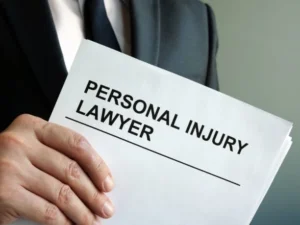What Is Considered Wrongful Termination?
When an employee is terminated, that is wrongfully terminated because laws or employment agreements have been violated. Most states allow employers to fire employees at will, or without any justification; however, such dismissal must not be based on illegal things, such as discrimination, retaliation, or anti discrimination rights breach.
As such, if you think that your termination was due to racial, gender, age, religion, disability discrimination, or whistleblowing, it can, thus, be categorized as an unlawful termination. Thus, knowing what wrongful termination is may assist you in knowing if you’re entitled to claim under wrongful termination law.
Common Examples of Illegal or Unfair Firing
In fact, there are several illegality scenarios in firing. One instance would be if the employer might terminate your employment because you’ve filed a complaint for harassment or you have taken legally protected medical leave. This might be considered a form of retaliation, which is a form of wrongful termination. Another example is where the employee is fired because of discriminatory treatment or involvement in union activity.
Wrongful termination also happens when the employees are fired for refusal to conduct illegal activities at the workplace and reported about the unsafe work environment. They can be wrongful termination examples that earn one the legal standing to file a claim for and seek compensation due to lost wages, mental distress, and damages.
Laws That Protect Against Wrongful Dismissal
There are many federal and state laws upholding employees against wrongful firing. Some of these protections include the Civil Rights Act of 1964 (Title VII), also the Americans with Disabilities Act (ADA), and the Family and Medical Leave Act (FMLA) as well as Age Discrimination in Employment Act (ADEA). Under these laws, it is prohibited for employers to fire employees for reasons of protected characteristics or for the exercise of any legal rights.
As if that were not enough, many states have wrongful termination statutes of their own, going even further. Such laws may encompass rights with regard to marital status, sexual orientation, or political activities. Some state laws also permit employees to sue for breach of implied contracts or even a violation of public policy, even when these matters arise in the context of at-will employment. Therefore, it is critical to know the federal and state level employment protections that apply to your jurisdiction.
In addition to that, the Occupational Safety and Health Act (OSHA) offers protection to whistleblowers against retaliation, and some state laws, beyond that, may provide wider protections. Consulting with a labor attorney can reveal to you which wrongful dismissal law applies in your case.
Unlawful vs. At-Will Termination
Most of the states of the U.S. abide by at-will arrangements, meaning the employer can fire you for any reason or no cause at all, unless of course that reason violates some law. The main distinction between termination, at-will, and unlawful lies in a firing’s breach of public policy, written employment agreement, or anti-discrimination laws.
There is legality behind wrongful termination when a firing does not comply with law. In case you have been discharged due to discrimination or retaliation involving engaging in or not in such other forms of protected activity as reporting violations of the workplace, your cause is beyond at-will and could qualify under employment law as a false termination.
Signs You’ve Been Wrongfully Terminated
Usually, wrongful termination is hard to identify because the employer presents it as underperformance or downsizing. Here are some patterns and warning signs that could indicate that you were fired for illegal or unethical reasons. Below are the common warning signs of wrongful or unlawful termination.
Fired After Filing a Complaint
If an employee is terminated soon after making an official report regarding harassment, discrimination or occupational safety issues, this could be construed as an illegal act of retaliation. Employers are strictly prohibited from retaliating against an employee making complaints on behalf of another or who exercises any legal rights under workplace laws. This time frame of events generally makes the case stronger for wrongful termination.
Termination After Positive Reviews
Another critical aspect is reflected in your employment records, indicating satisfactory or even outstanding performance; yet you have suddenly been terminated without the prior notification. Terminations that come without warning or a performance plan prior may actually be camouflaging discriminatory or retaliatory motives.
Unequal Treatment
If colleagues who share a similar position or have the same infraction were not dismissed while you happen to be caught, this points to discrimination. Thus, unequal treatment in the workplace, particularly when connected with a protected characteristic (i.e. race, gender, or disability,) can be unjust discharge.
Comments Found Unfair or Offensive
These derogatory or discriminatory comments included in any form or by way of signs of a person’s particular victimizing category, such as race, age, religion, given responses by your employer may serve as evidence in court concerning your case of wrongful termination. Such derogatory remarks are evidence of discriminative intent that breaches the federal and state laws.
Fired While on Leave
If an employee normally is working vacated by him from most to all hours worked during any and soon after returning from a medical (FMLA) or maternity or military leave, the inference may be that the dismissal amounts to a retaliatory action or rights violation. Such last-minute terminations are unethical, with their intricate legality.
Employer Altered the Explanation
If the employer that you’re working for is giving inconsistent or changing statements as to why you were fired, it is definitely a big warning sign. If stories change, they might be hiding what may be unlawful about your dismissal. That is why documents proving this inconsistency may be helpful in your case.
What to Do If You’re Fired Illegally
If you believe you have been wrongfully terminated, it is critical to act quickly. Start by documenting everything pertaining to your employment and termination, such as emails, performance reviews, written policies, and so on. Collect witness statements and jot down any questionable statements or behaviors leading up to your discharge.
After that, talk to an employment attorney specializing in wrongful firing law. They can examine your case, file a claim with the EEOC or appropriate state agency, and possibly bring a lawsuit on your behalf. Legal representation maximizes the chances that you will receive some amount of compensation or get reinstated.
Can You Be Fired Without a Reason?
Yes, in most states, an at-will employee can be fired without reason-lawful termination without cause. However, that does not give employers the right to do whatever they please. You cannot be fired on discriminatory grounds, for whistle-blowing, or for undertaking other activities in which protection is afforded. The moment a termination falls into those exceptions, it ceases being at will and becomes an unlawful termination.
If you suspect that your discharge was motivated by bias, retaliation, or misconduct, it may be worthwhile to see if the reason-or lack thereof-offered was merely a cover for illegal firing. Be aware of your rights and pursue action if there is any possibility of wrongdoing.
Conclusion
Being wrongfully terminated is very much a wrenching and financially draining experience for an employee. While the at-will employment doctrine would apply, a certain department of law, both under federal and state road, comes to the support of the employee.
Recognizing signs of unfair termination, gathering evidence, and consulting with a lawyer about your case are some of the most important steps to be taken in defense of oneself. Do not allow a false termination to go uncontested; fight for your rights and consider your options.





